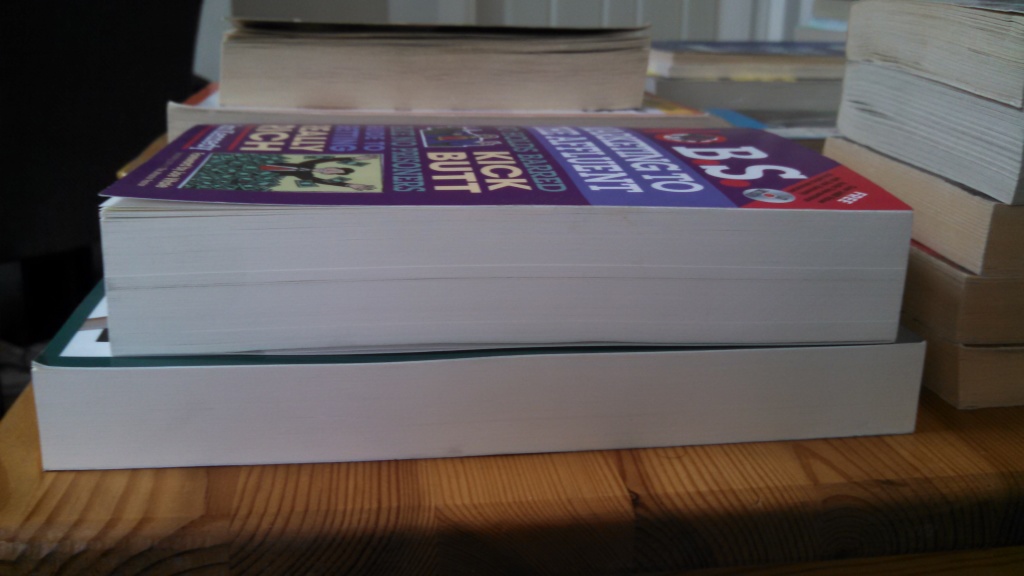 Blogging is a pretty lousy way to make money. I have an acquaintance who works a ho-hum office job and makes significantly more than any of the big name bloggers.
Blogging is a pretty lousy way to make money. I have an acquaintance who works a ho-hum office job and makes significantly more than any of the big name bloggers.
Despite the poor pay of this futile endeavor, a lot of guys still bomb me with questions like “How do I increase site traffic,” or “How can I make more money from my website?”
Since I get these questions a lot, I’ve developed a little post to help you out. Here are my five suggestions to increase your popularity and profitability:
1. Never use the word “I” in your headline
Do you know what the most boring phrase is the universe is?
The answer: “My ______.”
“My ______” or “I did _____” combines two of the least interesting things in the world: You, and a stupid activity that you did.
Readers want to hear about things that benefit them. They tune out as soon as you start talking about “My 315 lbs. bench press,” or how “I went to Turkmenistan.”
While you can speak in first person during your actual posts, as I often do, never ever put the words “I,” “me,” or “my” in your headline.
80% of people never read past the headline of an article. And, if I had to venture a guess, about 99% never read past an article that sounds self-centered (like “My amazing 315 lbs. bench press”).
Instead of writing about you, focus on what the reader has to gain. Using the bench press headline example, we can rework it to read as follows: “How You Can Achieve A 315 lbs. Bench Press.” You can catch the reader’s attention this way and lure him into your article.
2. Do not paste random affiliate links into your posts
The other day I looked at a blog which contained the following sentence: “You need a cool car, like something Batman or James Bond would drive.” Here was the problem, both the names “Batman” and “James Bond” contained affiliate links which took you off the author’s website and onto an Amazon page for either a James Bond DVD collection, or a special edition Batman movie.
The guy who did this probably though he could make some money off this trick. There’s only one problem, pasting random affiliate links won’t increase your profits. In fact, it will actually make your site look a hundred times cheesier, losing potential readers.
If you want to review a product, great. If you want to plug something relevant, as I’m about to do in the next section, that’s fine too. But pasting affiliate links over random words is a waste of time. And it makes you look shady. People buy on trust, something you can’t have if you’re constantly trying to shove garbage down your audience’s throat.
3. Be an expert before you write anything
I have a 3,000 word post on a certain business venture and how I found a way to get returns that are ten times greater than your initial investment.
So where’s the article?
In my “draft” folder. Why? Because the project that I worked on still has another month to go before I get my actual feedback. If the venture tanks (always a possibility) I’ve just given out bad advice. And that market is already over-saturated.
If you don’t know your topic you can’t write about it.
Would you take medical advice from a hobo? Then why would try to learn about investing or money from someone who knows nothing about either.
If you want to actually learn something do not look to blogs for advice. Most of them are terrible and their authors are shills who want to sell you something. Additionally, a 500 word article about business will always be inferior to a 500 page book that covers the subject in pornographic detail.
I recently picked up No B.S. Marketing To the Affluent and Secrets of a Freelance Writer. Both books cover a very narrow and specific niche. Yet their combined length is nearly 1,000 pages because the authors wanted to cover every aspect of each industry. Reading how geographical location impacts sales preference might not sound fun, but you’ll actually learn something. The same can’t be said for 99.9% of those passive income blogs that most guys love to read.

(Both books stacked up for visual reference)
“So how do you become an expert?” You might ask. Easy. Study something and do it until you’re in the top 25%.
I’m not the best eBook author in the world, but I’m better than most people. Same goes with things like article writing, sales, and marketing. Am I making a million dollars a year? No, but I’m 21 and doing better than most of my peers.
When you’re better at something than three-quarters of the population you can write about it. If you just want to steal information off Google (one of the worst resources for actually learning anything of value) and repackage it, you’re going to be in for a very rough ride.
4. Read a diverse range of books
Today’s post was originally going to be called “So you want to write for a living?” and feature an extensive reading list. However, I stumbled on two other blogs that had great book recommendations and I’ll refer you to them instead:
- 52 in 52 weeks is about a guy who is reading a book a week. It’s actually a really cool blog and the author has some diverse picks, ranging from classic literature to nonfiction.
- Danger & Play also has a good post on the best books written by people who are not straight white men.
In addition, I’d recommend reading books that are popular and analyzing what the author did to make their title become such a success. Books like The Da Vinci Code are poorly written fluff, but careful analysis can give you some insights into engaging an audience and writing for the common person.
Here’s a fun fact, 50 percent of students at four-year schools cannot:
- Interpret a basic graph showing the correlation between exercise and blood pressure
- Understand newspaper editorials
- Compare credit cards that have different interest rates and fees
In other words, you are going to have to learn how to convey a message as simply and coherently as possible. Study some mass market slosh and examine how the experts do it.
5. Write 1,000 to 3,000 words a day
Here’s the formula for writing a novel a year:
- Work five days a week
- Pen 350 words each day
- Write 260 days per year
Follow that plan and you just finished your first 91,000 word book.
While that’s good for the hobby writer, people who churn out constant content (sales letters, information products, blog posts) are going to need to step their game up. I try and average 3,000 words per day. For frame of reference, this blog post is currently 1,091 words. It took me less than an hour to write.
3,000 words a day should take you about three hours. If you stick to it you’ll pump out over a million words a year. When you’re writing that much your skill goes up exponentially.
It’s no coincidence that most famous writers produce several thousand words a day. Like athletes and musicians, they have to practice constantly. You’re never going to improve if you don’t make an effort to practice.
If you implement this advice you’ll see results. I promise.